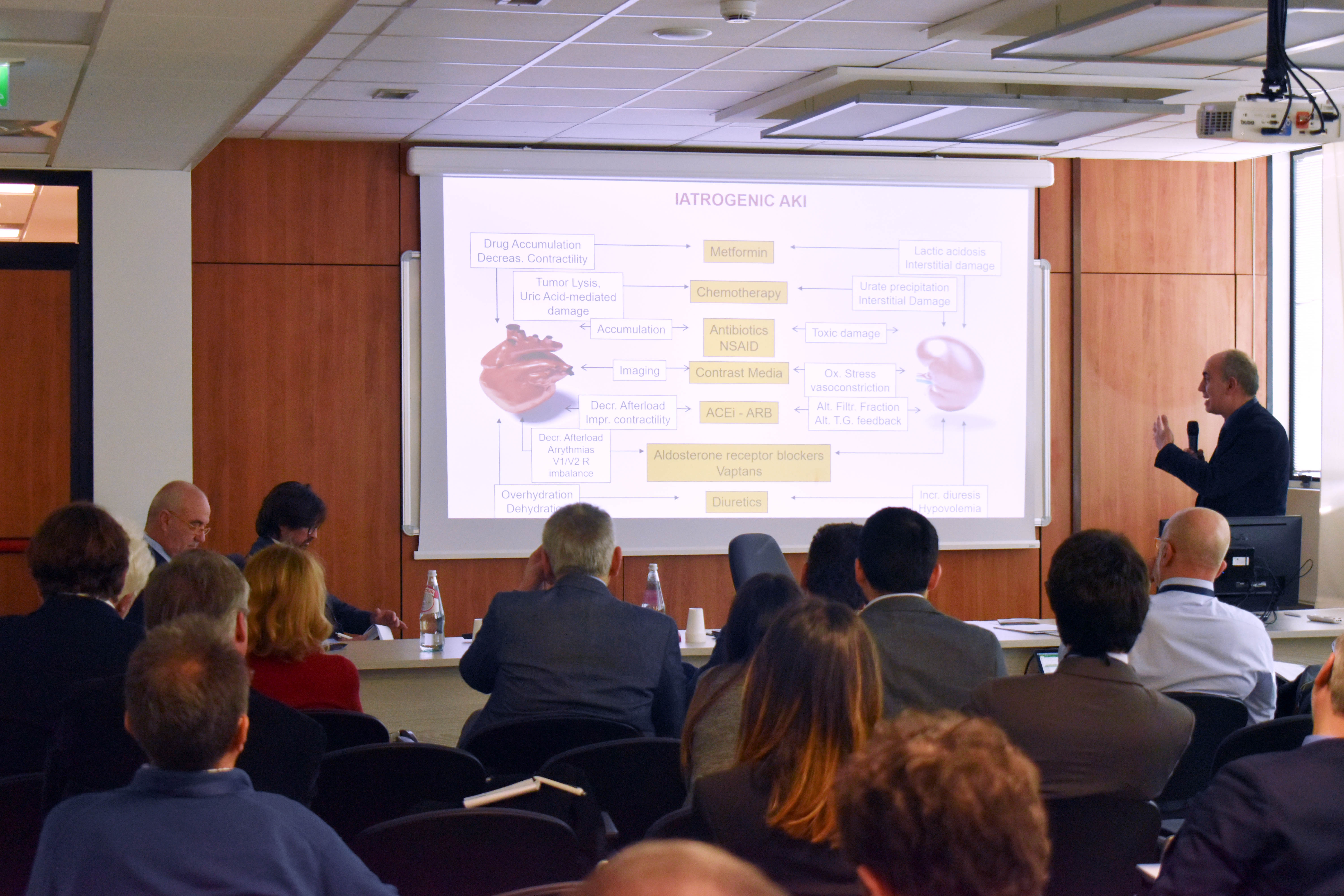
- ENGLISH/ITALIANO
- About Us
- Courses
- Teaching staff
- Research
- Enrolment
- Student services
- Faq and Contact
- News
- Vacancies
- Work with us
A large number of Cardiologists participated in the Regional Seminar THE “PERFECT” THERAPY OF HEART FAILURE organized by the Italian Society of Geriatric Cardiology (SICGe) on Friday 24 January in UniCamillus.
The issue of heart failure is very topical, since it is a relevant epidemiologically condition due to the aging of the population. In fact, chronic heart failure is among the most common cardiovascular diseases in patients of a certain age and the main cause of mortality and hospitalization for non-surgical diseases according to the Italian Ministry of Health.
The event, divided into five Round Tables and coordinated by Cardiologist Alessandro Boccanelli, President of SICGe and Professor of Moral Philosophy in UniCamillus, allowed a useful exchange of ideas among professionals, especially regarding new possibilities of treating the disease. Indeed, new classes of drugs are today available that can significantly improve the expectancy and quality of life, such as Sacubitril/Valsartan and Empaglifozin.
In addition to medical therapies, there are implantable devices that can improve the contractile force of the heart and minimally invasive procedures, such as replacement of the aortic valve by catheter (the TAVI) and transcatheter repair of the mitral valve (Mitral clip): these measures also allow solutions which were unthinkable until a few years ago to be applied to the elderly.
The organizational aspects of treatment were strongly emphasized: since it is a chronic disease, heart failure requires the presence of a territorial-hospital network that responds to needs differentiated according to the stage and phases of the disease. In this context, the Seminar gave much space to telecardiology, considered as a real “remote monitoring” that allows a quick teleconsultation between general practitioner and cardiologist specialist, or directly usable by the patient himself, who can be quickly alerted in case of onset of new pathological elements or, on the contrary, reassured. Virtuous experiences of network management of the disease were reported, as is the case in ASL RM2, which has managed to move the axis of assistance on the territory with new organizational models that integrate specialist teams (giving considerable importance to nursing care) and primary care. Patients are actively involved in increasing adherence to therapy and improving lifestyles.